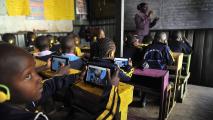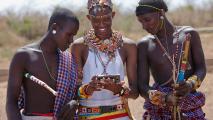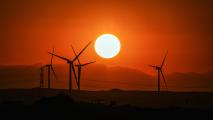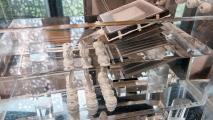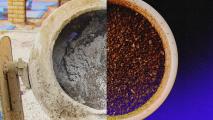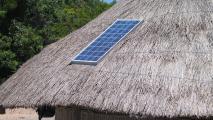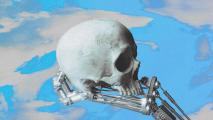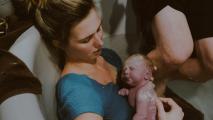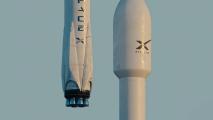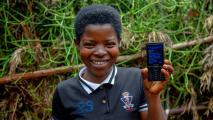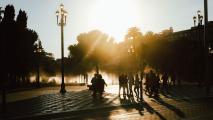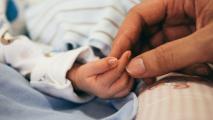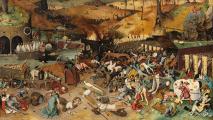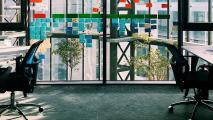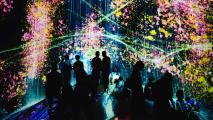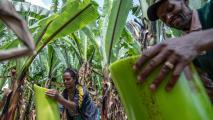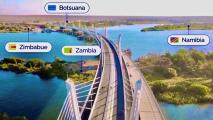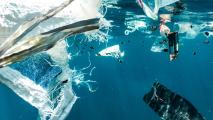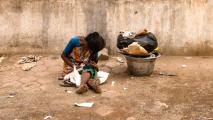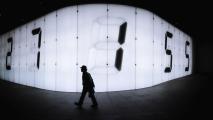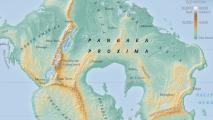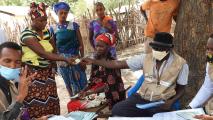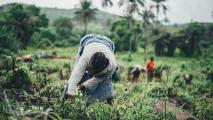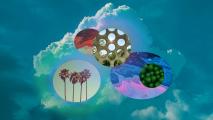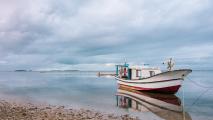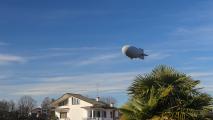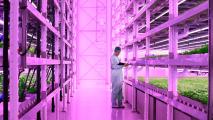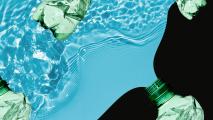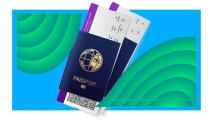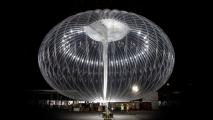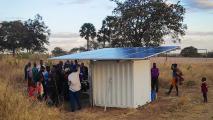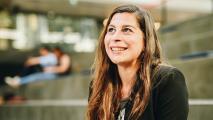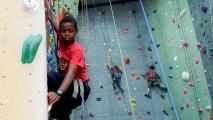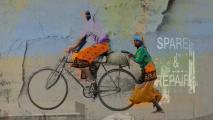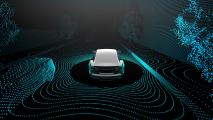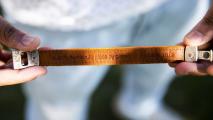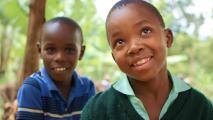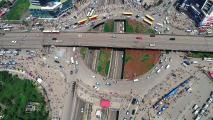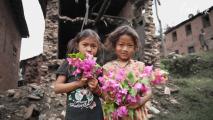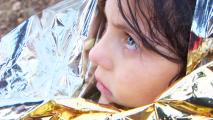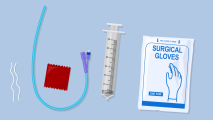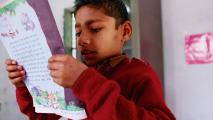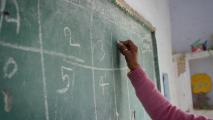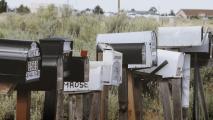Field: Global Development
Google’s $1 billion bet on Africa’s digital future
Just 37% of sub-Saharan Africans use the internet today, but Google predicts the next 10 years will be the region’s “digital decade.”
2.6 billion people don’t use the internet. What’s stopping them?
One-third of the world still isn't online. Here's how the International Telecommunication Union (ITU) is working to close the digital divide.
Here’s what it’ll take to power Africa’s clean energy future
The renewable electricity revolution is well underway in Africa, but needs to be shared across borders, this research found.
Desalination system could produce freshwater that is cheaper than tap water
Engineers are aiming to turn seawater into drinking water with a completely passive, solar-powered device that is inspired by the ocean.
Researchers brew a stronger concrete using — coffee?
Researchers and engineers from RMIT University made concrete 30% stronger in the lab by incorporating aggregates made from coffee grounds.
MIT students develop energy “mini-grid” software for remote & mountainous areas
MIT Energy Initiative spinoff Waya Energy helps countries work toward universal, cheap access to electricity.
Will AI kill humanity by 2100? “Superforecasters” and experts disagree on the odds
AI was the most divisive topic in a recent predictions tournament.
We are spectacularly bad at predicting the future
Forecasters say AI will either enslave or liberate us, but the history of prediction suggests we have little way of knowing who will be correct.
The radical drop in maternal mortality was a public health miracle
In 1758 in Sweden, 1205 mothers died for every 100,000 live births, which was likely representative of the global maternal mortality rate.
Starlink: SpaceX’s new internet service could be a gamechanger in Africa
SpaceX’s Starlink service is slowly arriving in Africa, starting with Nigeria and Rwanda. It could be a game-changer.
Fighting poverty with direct cash payments
GiveDirectly has delivered over $500 million in cash to impoverished people, letting recipients decide how best to meet their needs.
5 ways to cope with increasingly intense heatwaves
Heatwaves in Japan and Italy reached record-breaking temperatures in June. How can humans cope with these dangerous conditions?
How child mortality fell from 40% to 3.7% in 200 years
The collapse in child mortality rates is a testament to the tremendous benefits of scientific, technological, and economic progress.
A historian identifies the worst year in human history
The year 536 ushered in the coldest decade in thousands of years and started a century of economic devastation.
A world map of start-up ambitions
In New Zealand, ambitious Kiwis want to launch a lawn mowing business; in South Africa, it's cooking gas refills. Start-up dreams vary widely.
How to be a techno-optimist
Technology will not save the world, and it is inherently neither good nor bad. But, when tech is coupled to human virtue, good will prevail.
This starchy wondercrop could help alleviate food insecurity
Enset, a perennial banana-like fruit cultivated in southwestern Ethiopia, is an underexploited starch crop with significant potential.
Why Africa’s newest super-bridge is in the continent’s weirdest border zone
The Kazungula Bridge has turned a cartographic near-miss into a geopolitical marvel, with a chance to renew Africa's economy.
Where does the plastic in our oceans come from?
Which countries and rivers emit the most plastic to the ocean? What does this mean for solutions to tackle plastic pollution?
We need to know about progress if we’re concerned about the world’s large problems
Our World in Data explains their mission to publish the “research and data to make progress against the world’s largest problems.”
Longtermism’s perspective on humanity’s past, present, and future
If we manage to avoid a large catastrophe, we can see ourselves as living at the early beginnings of human history.
What the world will look like in the year 250,002,018
On Pangaea Proxima, the supercontinent of the future, Cape Town and Mexico City are just a day’s drive apart.
Surprise in death data: Malaria has a U-shaped death curve
Better death records can reveal surprises about common killers like malaria — and help save lives.
Combining crops and solar panels is allowing Kenya to “harvest the sun twice”
The panels are mounted high enough for crops to be grown underneath, sheltering them from the sun and allowing rainwater harvesting.
Elon Musk: Europe should revive nuclear energy
The Ukraine crisis has highlighted Europe's dependence on Russia for fossil fuels. Is more nuclear energy the solution?
The case for techno-optimism: Is the world about to enter an era of mass flourishing?
Historically, periods of mass flourishing are underpinned by technological revolutions. Currently, we are undergoing a technological revolution unlike anything the world has ever seen.
Undersea cable laws have hardly changed since 1884 – Tonga shows they need modernizing
Cable-laying ships navigate complex but outdated maritime laws.
Series|
Make It Count
How vertical farming can save the planet and feed the world
In partnership with Million Stories
Vertical farming is a radical new way to feed our growing population sustainably. But can it replace traditional farming?
Series|
Make It Count
How biomaterials could save the planet
In partnership with Million Stories
By 2050 there will be more plastic than fish in the ocean. But biomaterials may be the solution.
Remote Work Is Reversing the Brain Drain
Rural economies can now lure top talent away from big cities and affluent countries — could this be the reverse of the brain drain?
The most advanced digital government in the world
Estonia was the first country to hold a nationwide election online, and the first to declare internet access a human right. Will other countries follow suit?
Loon is beaming balloon-based internet to Kenya
The Loon balloon-based internet platform looks to bring connectivity to those without it. The first commercial deployment is taking place high above Kenya.
Starlink internet to begin beta testing
SpaceX’s Starlink internet project promises to use satellites to improve internet access. Beta testers will get the chance to try it later this summer.
Powering the most remote areas on earth
With off-grid solar power systems, this company is building sustainable communities in remote areas, providing a source of renewable energy and clean water.
Conversations with refugees
Aline Sara is changing the conversation around what it means to be a refugee by talking — literally. Through her...
Rock climbers help refugees in america
This nonprofit is teaching refugees in America how to rock climb - helping displaced children better face new challenges and transition to life in the U.S.
This nonprofit gives bikes and people new life
Working Bikes has spent nearly two decades rescuing bicycles from the waste cycle to give people purpose, access to jobs, and independence.
In the midst of a crisis, Venezuelans are training self-driving cars
Hundreds of thousands of formerly middle class Venezuelans, thrown into poverty by economic collapse, are now sitting at computers as they help train self-driving cars to identify and avoid obstacles.
Life jackets are used to create jewelry, opportunity for refugees
Hordes of bright orange lifejackets are strewn across the rocky beaches of the Greek island of Lesbos. Discarded...
Bringing community healthcare to the people
In partnership with Skoll Foundation
There is an urgent challenge in Sub-Saharan Africa: people are dying from treatable illnesses like malaria, pneumonia, and diarrhea. Now, people are turning to their neighbors for community health care.
The future of micromobility in Africa
In Addis Ababa, Ethiopia, improvements to infrastructure shift focus from cars to micromobility. The city’s transportation plan calls for hundreds of kilometers of bike lanes and pedestrian pathways for increased safety.
Could we end earthquake deaths?
Thousands die in earthquakes every year - even though we know how to build safely. This engineer is working with people in the most vulnerable places to figure out why.
Should we legalize gangs?
Gangs are a major cause of violence and organized crime. Here’s why countries should think twice before trying to...
This child psychiatrist is saving refugees from trauma
With the right intervention at the right time, a trauma can be recorded in the memory as non-traumatic and in many cases the devastating effects of PTSD in children refugees can be avoided.
Macgyver medicine can save lives
The package is simple and dirt-cheap—a plastic bag with a condom, a syringe, a rubber tube, and a card with...
How to change the world
In partnership with Skoll Foundation
Olivia Leland, founder and CEO of Co-Impact, on how we should approach solving the world’s most complex problems.
How to teach kids to read in as little as 50 days
In partnership with Skoll Foundation
1 in 10 people in the world today are illiterate. This program teaches people to read in as little as 50 days.
How to send mail to a person with no address
Millions of people have no address. They can’t get mail, they can't vote, they can’t get aid, and they don’t have...
